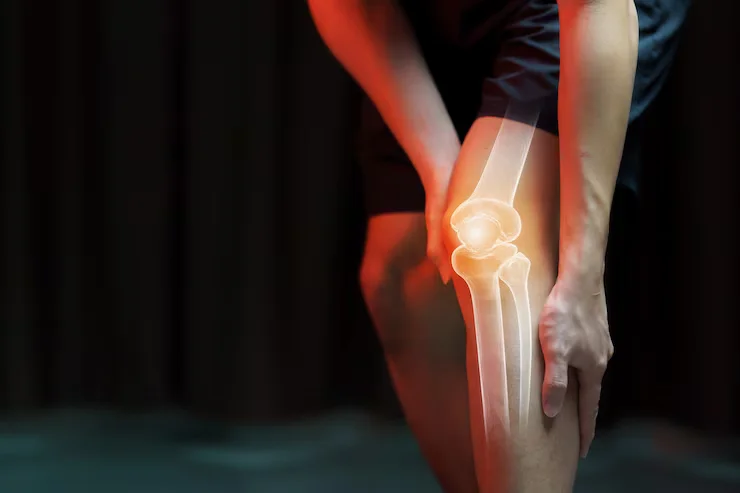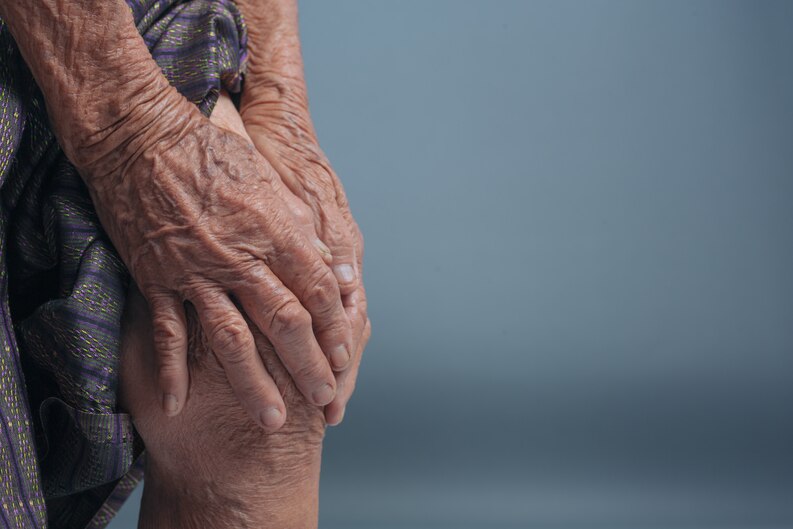Arthritis represents a progressive degeneration of joint health, characterized by inflammation within the affected joints. While commonly associated with adults, arthritis can also affect individuals in their younger years. Early intervention is crucial to mitigate the progression of the disease and prevent further deterioration. Symptoms typically include joint pain, stiffness, and swelling, with severity varying depending on the type of arthritis. Various forms of arthritis exist, numbering over a hundred distinct varieties. This blog help you understand whether Ayurvedic treatment benefit Arthritis or not.
Also Read: Ayurvedic Treatment for Amavata (Rheumatoid Arthritis)- A Comprehensive Guide

Ayurvedic Management of Arthritis
The Ayurvedic approach to healing delves deep into identifying the root cause of ailments, aiming to restore the harmonious equilibrium of the mind, body, and emotions. By addressing the underlying imbalances, Ayurveda seeks to not only alleviate symptoms but also prevent their recurrence.
In the realm of arthritis treatment, Ayurvedic methodologies are geared towards halting the progression of the condition and enhancing joint functionality. Ayurvedic treatment benefit Arthritis by providing both internal remedies, such as tailored medicinal formulations, and external therapeutic interventions.
Rooted in ancient Indian wisdom, Ayurveda advocates a holistic approach to well-being, integrating nourishment, physical activity, and mindful practices like meditation. In cases of arthritis, the incorporation of specific nutrients and supplements alongside conventional medical treatments could offer additional benefits, further augmenting the healing process.
Also Read: Tips for Managing Rheumatoid Arthritis with Ayurveda
The Major Causes of Arthritis
- Ageing
- As individuals grow older, they become increasingly susceptible to certain health conditions, including arthritis. The wear and tear on joints over time can exacerbate the risk of developing arthritis.
- Overweight or Obesity
- Excess body weight places undue strain on the joints, particularly in weight-bearing areas such as the knees and hips. This added pressure can accelerate joint degeneration and increase the likelihood of arthritis.
- Genetic Predisposition
- Family history plays a significant role in determining an individual’s susceptibility to arthritis. Inherited traits and genetic markers can predispose someone to developing specific types of arthritis.
- Muscle Weakness and Deterioration
- Decreased muscle strength and tone can contribute to joint instability and improper alignment, leading to increased wear and tear on the joints. This can further exacerbate the onset and progression of arthritis.
Symptoms of Arthritis
- Pain and Rigidity
- Arthritis often manifests as persistent discomfort and stiffness in the affected joints. The pain may vary in intensity, ranging from mild discomfort to severe, debilitating agony, impacting daily activities and mobility.
- Sensitivity to Touch
- Affected joints may exhibit tenderness or heightened sensitivity to pressure. Even gentle touch or slight pressure can elicit discomfort or pain, indicating inflammation and tissue irritation.
- Limited Range of Motion
- Arthritic joints often experience reduced flexibility and mobility, leading to restricted movement patterns. This limitation can impede activities such as bending, walking, or lifting, diminishing overall quality of life.
- Inflammatory Responses
- Inflammation is a hallmark characteristic of many forms of arthritis. Swelling, redness, and warmth around the affected joints signify an immune response, indicative of underlying joint damage and inflammation.

- Inflammation is a hallmark characteristic of many forms of arthritis. Swelling, redness, and warmth around the affected joints signify an immune response, indicative of underlying joint damage and inflammation.
Arthritis often happens because people don’t move enough, eat at irregular times, and consume too many dairy products. The main problem is weak digestion, which can be improved by eating right and exercising. Arthritis means joint inflammation and it slowly damages the joints. It usually affects older adults, but young people can get it too. It’s important to treat arthritis early to stop it from getting worse. The type of arthritis determines how many joints are affected.
Arthritis is a chronic disease that deals with the joints. Raha Ayurveda provides authentic Ayurvedic Treatment for Arthritis, osteoarthritis, knee pain, and other joint related diseases. Get the best Ayurvedic Treatment for arthritis at Raha Ayurveda, an authentic Ayurvedic Arthritis treatment center in Kerala.
Also Read : Ayurvedic Cure for Osteoarthritis at Raha Ayurveda

Leave a Reply